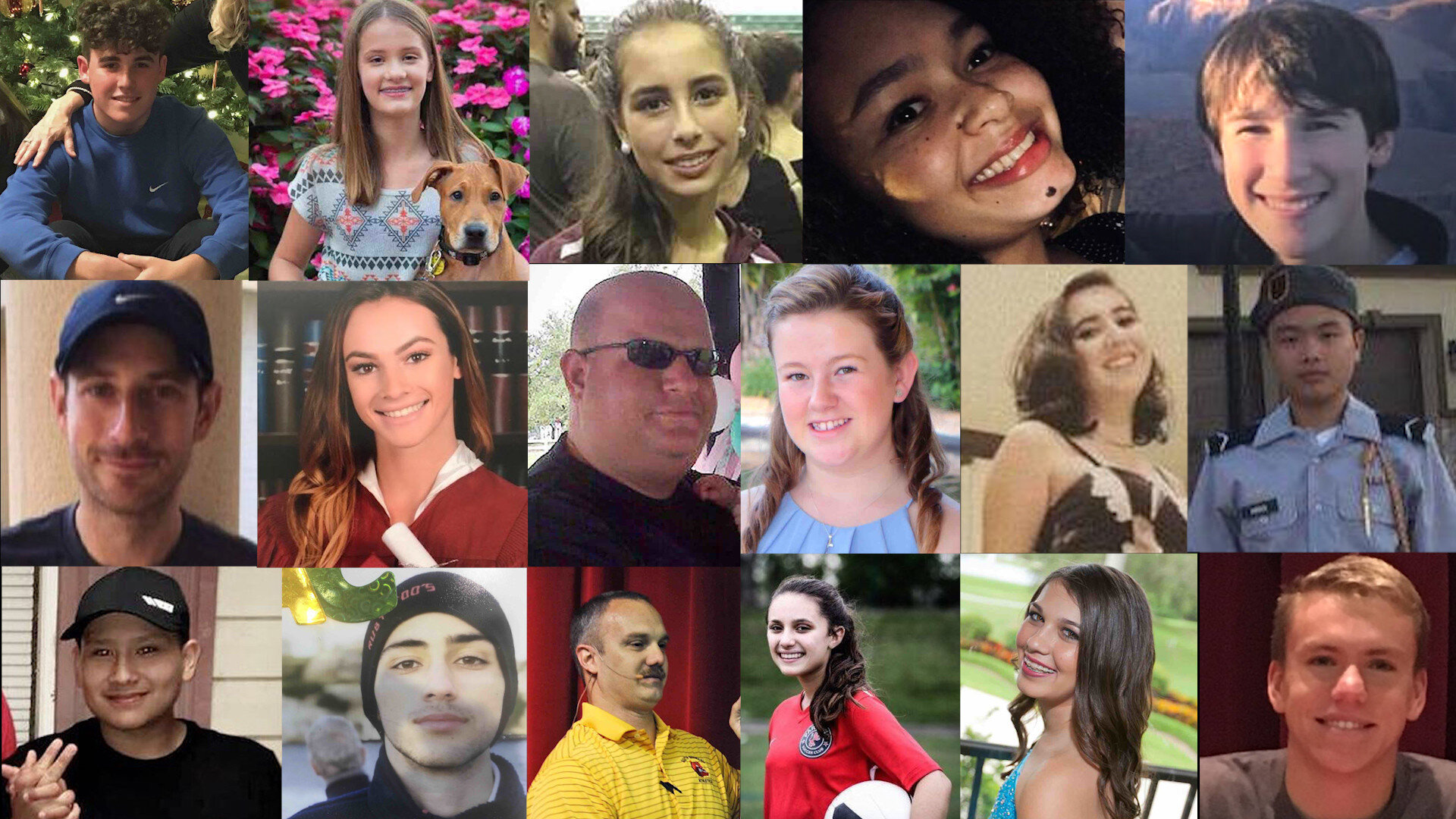By Katherine Leonard, TWR Fellow ‘20
IN 2018, A SCHOOL SHOOTING IN PARKLAND, FLORIDA REIGNITED AMERICA’S DEBATE ABOUT GUN CONTROL AND VIOLENT EXTREMISM. THREE YEARS LATER, WE REFLECT ON HOW TO PRACTICE COLLECTIVE MEMORY IN A WAY THAT UPLIFTS THE HUMAN ASPECTS OF TRAGEDY.
Coming of age in America, with its idiosyncrasies and distinct culture, is a unique experience. Each generation’s experience is different and yet intertwined with similarities. Young Americans are bonded by memories of barbecues, football games, and Girl Scout cookies.
But the youth of America is also connected by fear, with memories of lockdown drills woven with their classroom experiences. This fear is grounded in real tragedies, like the shooting at Marjory Stoneman Douglas, where 17 people were killed, and 17 more were injured in Parkland, Florida only three years ago. This was the deadliest school shooting in American history.
This devastating event in our recent history represents one of the many times America’s slogans of “never forget” and “never again” failed the citizens it vowed to protect. Parkland was not the first school shooting, nor was it the last.
The school shooting came at a time when Americans were already desensitized to gun violence. Before February 14 of 2018, school shootings were already considered normal in American culture. In the time between this past December and the Columbine massacre in 1999, there have been 304 fatal school shootings. Our country had long been accustomed to the post-shooting routine.
When a mass shooting happens, Americans fall into the same pattern, like pieces on a chessboard. Politicians and leaders send “thoughts and prayers.” News organizations focus their coverage on the heinous act of violence and the killer’s past, dissecting and deconstructing every morsel of relevant information. Intense debate commences with shame projected onto all sides of the gun control debate. Eventually, the general public tires itself out, so the conversation lays dormant until the next tragedy arises. Organizations on the front lines like Everytown for Gun Safety and Sandy Hook Promise are left on their own to fight for change.
In many ways, the Parkland shooting represented a breaking point for young Americans. Survivors spoke out, and for the first time, it felt as though adults were listening to what the kids had to say. The young activists who emerged from this tragedy, like Alex Wind and Emma Gonzalez, propelled Americans to demand action from their legislators with a new fervor.
Over 100 students met with lawmakers in the Florida state capital to advocate for gun control. They visited the White House to meet with President Trump just two months after the shooting. Shortly after, they organized the March for Our Lives in Washington, D.C.
And despite the efforts of these brave and outspoken activists, nothing much changed. Our nation’s gun laws remain the same and shootings continue to be a part of the fabric of our nation. The last major restriction on gun ownership was imposed in 1994 by President Clinton. The temporary assault weapons ban lasted until 2004, and since then multiple attempts to renew this ban have failed.
The continued inaction of lawmakers has put the right for a person to bear arms above the right for a child to grow into adulthood. The stagnancy of America’s progress on gun laws following so many senseless deaths prompts us to wonder how we should look at tragedies like Parkland.
If the voices of young students, who witness death and tragedy in a way no person should, did not wake up the nation, then what will? It wasn’t the faces of the children from Sandy Hook, whose innocence was stolen. It wasn’t the disturbing footage from Columbine, where the school looked like a war zone. How can we look to these tragedies of the past to make sure they never happen again, when the lessons to be learned continue to be ignored?
What gets lost in the aftermath of shootings like Parkland are the most human elements of the tragedy. It is easy to get lost in statistics, like how Americans own nearly half of all civilian-owned guns worldwide. It is easy to be overwhelmed by theories, like how violent video games are to blame. It may even be a welcome distraction to the true devastation of mass shootings. Perhaps plunging oneself in the divisive debate over gun control allows one to avoid looking at the horror that is intrinsic to our nation.
But we must look at the tragedy right in the eye. We cannot allow Parkland to only be thought of as a representation of our nation’s problems of violent extremism and gun violence in our nation. When we do this, we fail to remember the human aspect of the issue. Gun reform is urgent, and change needs to be demanded. We can do this by listening to the stories of those affected by gun violence. We can consider the fear of a child hiding beneath a desk during a drill at their school, wondering if it’s real. And we must continue to consider these unfortunate parts of the American experience that simply should not exist.
Alongside our uniquely American experience of school shootings lies a uniquely American question: How do we remember events like Parkland in a way that simultaneously demands change and uplifts the humanity of each person directly affected?
It is integral to understand the trauma of the survivors and the innocence that was robbed from them. We must remember the victims, whose lives were cut short and dreams were stolen. We must collectively grieve the immense loss of events like Parkland this way. The answers we gain from those closest to the violence are reminders of the need to protect human life. The issue no longer seems political or ideological, but one where this is a certain path needed to be taken to ensure that no more lives are taken in this way. To ensure that no more children have to know the pain of watching their classmates die. To ensure that schools are a safe place for learning, not a place at risk of violence.
We must listen, understand, remember, and demand action, to honor the lives we lost in the past and prevent the loss of lives in the future. We have no choice.
Kate Leonard is a third-year student at Fordham University in the Bronx, NY studying Humanitarian Action and Italian. She is a Youth Action Network Fellow and Executive Editor of Together We Remember’s blog. Her passion for human rights has inspired her to engage in activist work relating to criminal justice and migration.
References:
https://www.nytimes.com/2019/04/14/us/columbine-school-shootings.html
https://www.cnn.com/2017/10/03/americas/us-gun-statistics/index.html
https://time.com/5169210/us-gun-control-laws-history-timeline/
https://www.security.org/blog/a-timeline-of-school-shootings-since-columbine/
Banner Image Source: https://www.sun-sentinel.com/local/broward/parkland/florida-school-shooting/fl-reg-parkland-shooting-notification-20180300-story.html

